I have a pretty messy dataset. For example, one column has data such as
import pandas as pd
df = pd.DataFrame(dict(col1=[
421991.003,'421991.0029999995','0421991.003','0421991.0W5'
]))
Expected str values after reformating each value in the column:
'0421991.003','0421991.003','0421991.003','0421993.0W5'
The first is in int, the others in str How can I transfer them into a str format of XXXXXXX.XXX
